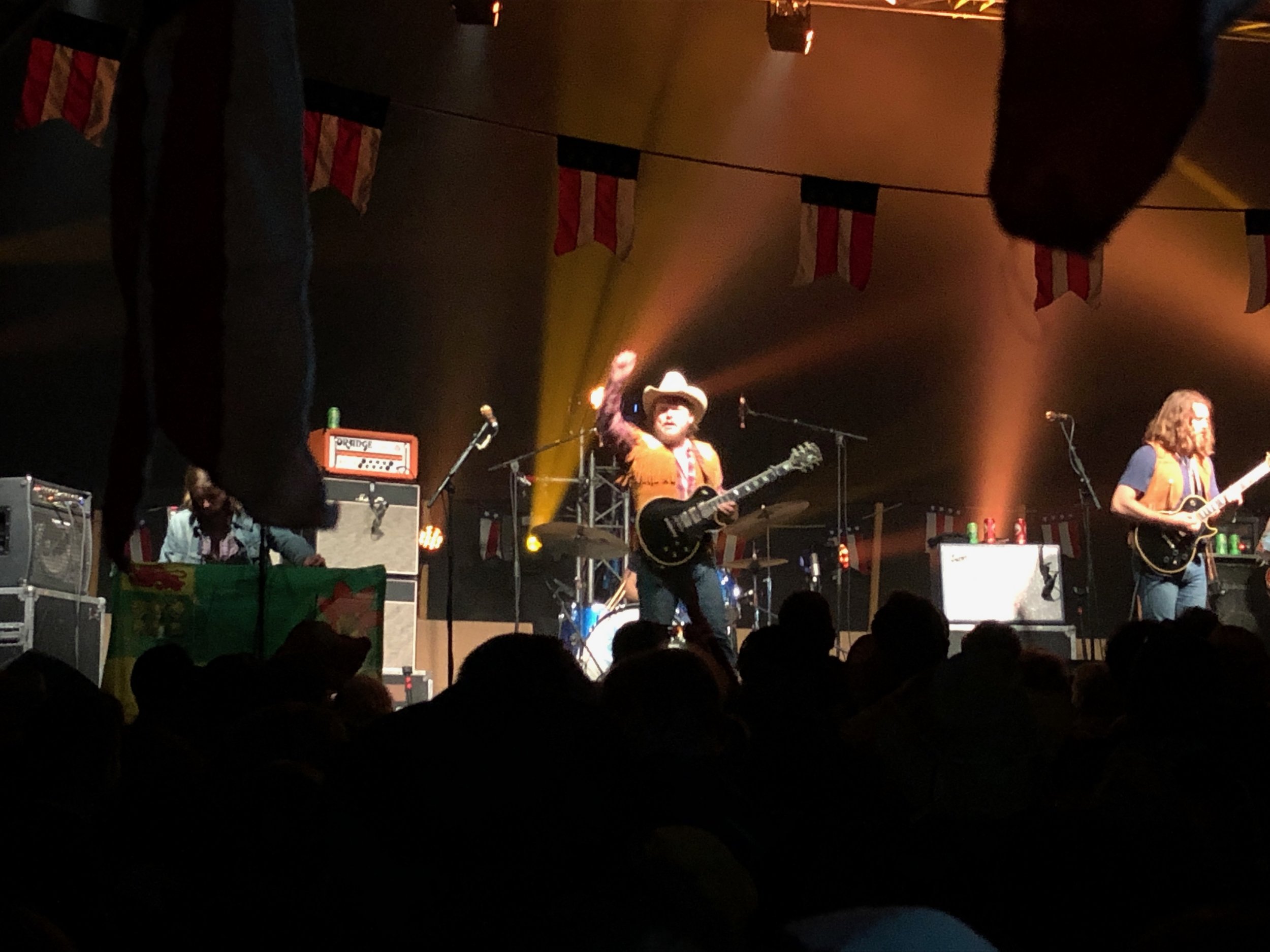Lightning on the Mountain and Other Short Stories
2020
The song Lightning on the Mountain, the first single released from the album of the same name, is reminiscent of the fiddling Carolinian Charlie Daniels, whose single “Devil Went Down to Georgia” is brought to mind, as is the title of his 1974 album Fire on the Mountain. But the fiddle play here, and on the famous Daniels hit, both echo an older tradition, one that ultimately looks back east across the mountains and the ocean, to where the music and the whiskey originated. The lightning in question here is, in fact, in liquid form, the white lightning of George Jones and the Big Bopper, of Waylon and Hank Jr. Everyone loves a bootlegging tale, so it was with great anticipation that I cracked open Lightning on the Mountain and Other Stories, the debut solo album from Kyle Nix
Conceived by Nix as a collection of short stories in song form, as opposed, that is, to a concept album, Lightning on the Mountain opens with a widescreen frontispiece of old-timey fiddle scratch and desert canyon guitar twang, befitting an epic western. The allusion is similar to that employed by the Coen brothers in The Ballad of Buster Scruggs, where each vignette is introduced by the turning page of a story book, conjuring childhood memories. Interludes are used at points throughout this album to punctuate the narratives, notably with the portentous prelude to Meet your Maker, and then again at the climax, where the theme is reprised in theatrical, Mariachi style. Between these bookends, Nix spins his disparate tales of love and life, making music that resounds with knowledge, style, and experience of his craft.
Kyle Nix plays fiddle for Turnpike Troubadours, a popular cornerstone of Oklahoma’s red dirt music, and is far from being a newcomer. While Turnpike Troubadours remain on pause as a band, Nix has used the opportunity to spread his wings, bringing his voice and his songs front and centre. Many people may wonder why he has waited until now to step up to the mic? Suffice to say, holding down fiddle duties for a majorly popular touring band can’t leave much time for side projects. With the rest of his band mates in a similar situation with regards to their main band commitments, it makes sense that Nix chose to use them for his solo debut. The result is a rock-solid album encompassing a range of styles from across the spectrum of country and Americana music. The production is crisp, the drums are solid and the guitars twang and chime. There’s steel where needed and Nix’s fiddle propels the arrangements from one story to the next. From a Whiskey Preachin point of view, any record with a track like Shelby 65 would be worth attention, but this collection is no one-track wonder. Let’s see what Kyle Nix has to say about his debut album and his chance to record his songs with a band best know for playing someone else’s songs.
It was great to see your song Josephine included in Rolling Stone Country’s music picks of the week. In the review of the song they state that “Nix, the longtime fiddle player in Turnpike Troubadours, is just as powerful under his own name as he is with the band”. In fact, it is the same band. Does it feel strange using the same band without using the name, or was this just the natural thing to do?
It doesn’t. They’re friends first & foremost. We’ve traveled hard together and we know each other’s capabilities so it only made sense to have friends that I trust on my first record. But I also had many other fantastic musicians on the album: Byron Berline, Ian Moore, Kevin “Haystack” Foster (Jason Eady), Grant Tracy (Jason Boland & The Stragglers), Chris Jones & Issac Stalling (Chris Jones & The Flycatchers), Dan Walker (Heart, Ann Wilson), Kullen Fox (Charley Crockett), Chandra Graham & Myra Beasley, Ken Pomeroy... and Wes Sharon, my producer, played bass on several of the songs. The band, “Turnpike Troubadours”, is the lineup w/ Evan as the frontman and a certain style of song. Some of my songs wouldn’t fit within the realm of the Turnpike Troubadours and that was part of the reason I ended up putting out a record. I knew better than to force certain songs into that space. We have a formula as that band and I wasn’t going to throw a wrench in there.
Lightning on the mountain feels familiar and welcoming from the first listen. Obviously, this is your solo project, but it is being realised by the Turnpike Troubadours minus one, Evan Felker. How fair would it be to describe this as a Turnpike Troubadours album in all but name?
I think I answered that above haha
It’s different because they’re my songs. It breaks the Troubadours formula a bit- and it’s different because of the contributions from other artists. Those two combined shake it up a bit. There are songs that are similar to what we did in the band, too, but that’s going to happen given that Me & the guys-Ryan, Gabe, RC, Hank- were a part of that sound.
Will you be touring the album with the band but not playing the TT material?
Yeah, I’d like to go on the road when it’s safe to. I’m not going to be jumping the gun though and I won’t be playing Turnpike Troubadours songs. I have a lot of my own to play so I’ll play those.
Evan Felker has spoken about his preference for writing alone, quoting John Steinbeck’s line from East of Eden, ‘There’s not ever been a really brilliant co-write.’ Felker has co-written songs in the past, notably with Kevin Russell, Jamie Lin Wilson and several times with ex-band mate John Fullbright and bassist RC Edwards. Is it important to you to keep your songs separate from the Turnpike Troubadours material, to create your own world and tell your own stories?
That’s what I feel that I may have done with this first record. They were mostly songs that came out unabridged and I’ve continued that pattern of writing these last few months. When you write without inhibition, the style seems to fit you personally more than it would if you have somebody else in mind. That being said, I think I could write with/for the Troubadours. I’ve always been a part of the musical composition part of the songs and I’ve gotten better over the past 2-3 years with lyrical composition. I’d be up for it.
It’s nearly three years since the release of the last Turnpike Troubadours album in October 2017. When did you start writing the songs for Lightning on the Mountain? Was this album already in your head back then? How long have you been planning this project and been working on these songs? Have some of them been with you for a long time?
I began the process when we were in the studio for that album. I wanted to have some songs in case we needed them so I got busy. We already had enough though so I put mine aside. Then I wrote more: songs from scratch, re-worded songs from old melodies of mine, slapping lyrics on original fiddle tunes, & so on. There was a point in there that I knew I’d have to put them on something, get them out into the world and not let them sit, shrivel & die.
Over a year ago the Turnpike Troubadours decided to have a break from touring. Other than working on Lightning on the Mountain, have you been working on any other projects since TT went quiet? Has the extra time allowed you to play with any other bands or play on other people’s albums?
I’ve just been writing. A lot. And reading and listening and learning. The quiet can afford you those things and I’m taking advantage of it.
You’ve combined your love of fiction and western movie scores to create a collection of stories punctuated and bookended with cinematic, Morricone-esque flourishes, You have described the album as a collection of short stories. Are you more of an Elmore Leonard fan than a Raymond Carver fan? Thom Jones or Flannery O’Conner? Who is your favourite short story writer?
I’ve read Carver & O’Connor...I love Breece D’J Pancake, Shirley Jackson. Hemingway’s “Nick Adams Stories” stand out. The Steve’s: Stephen King & Steve Earle (Doghouse Roses)
Do you have a favourite novel? What book would you recommend for us to read?
To Kill A Mockingbird -Harper Lee
The Old Man and the Sea -Ernest Hemingway
The Stand -Stephen King
I like a lot of Stephen King. I can read it quickly & retain the stories. He’s not just a horror guy, either.
You cover a lot of ground on Lightning on the Mountain, from the barnstorming title track, the rollicking Little Miss Jones and the high-octane Shelby 65 (a personal favourite of mine, like Charlie Daniels doing Maybellene), to the more California-facing Josephine, the country soul of Sweet Delta Rose, the back porch bounce of Good Girl Down the Road, the classic bluegrass sound of If Ruby Ain’t Happy, the waltzing lament of Woman of Steel, and the old timey hoedown of Old Joe Clark. This song set impressively showcases myriad styles of country music. Who are your biggest musical influences?
Bill Monroe, Hank Williams, Dylan, Willie, Chris Cornell, Byron Berline, The Band. And my band.
Oklahoma is slap bang in the middle of south-central USA, with Texas to the south and west, Kansas to the north, and Arkansas to the east. Do you think this has given OK musicians and bands a specific set of influences that have created the Red Dirt music scene? Do you identify strongly with the Red Dirt scene?
I think we use a myriad of influences and just mix ‘em up in our Bible Belt brains and what comes out is what comes out. I love the “Red Dirt” scene because it’s laced with kind souls and open arms. They’re inclusive, fantastic people and it feels more like family when you’re a part of a “scene” like that.
Who are your favourite fiddle players, from the past or from today?
Michael Cleveland, Kenny Baker, Tommy Jackson, Byron Berline.
I’m close with Byron & he’s taught me a ton these past 6-7 years. It’s great to have someone like Byron help steer you through tough times, give strong advice, show you how he plays a certain tune.
You seem to have been influenced more by bluegrass than by western swing. Is bluegrass bigger than western swing in Oklahoma in general? Or is Bob Wills still the king?
No, not really. I think I just identified with bluegrass as soon as I heard it. To each their own. Bob Wills is still the king but Bill Monroe is “The Father of Bluegrass”. They’re both Kings, really.
Can we expect a second solo album from you some time in the future?
I have a lot of songs...
Imagine you are asked to book the bands for your fantasy festival stage, any bands, past or present, dead or alive, who would be on your line up?
Bill Monroe (The Bluegrass Boys w/ Flatt & Scruggs)
Hank Williams
Jimi Hendrix
The Band
Electric Dylan & Solo Dylan
Well, I doubt anyone’s going to be too upset with that festival lineup, but who’s going to headline? It could be said that there is something for everyone on Lightning on the Mountain, from thundering stomps and old-timey hoedowns to red dirt rock and banjo ballads. It may be that some find this diverse stylistic approach to heterogeneous for their taste, but from where I’m listening it demonstrates a wealth of experience and song craft that deserves attention.
Tony Sexton




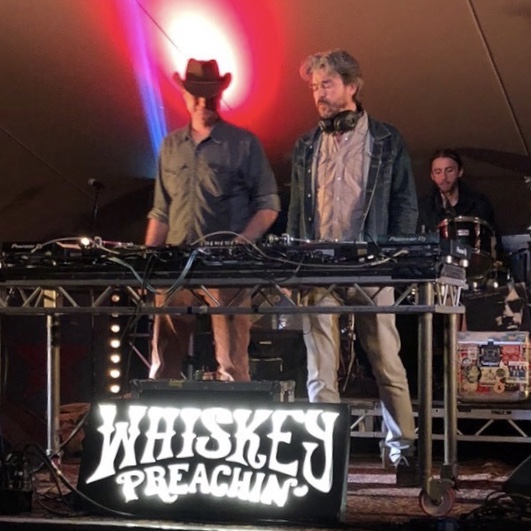
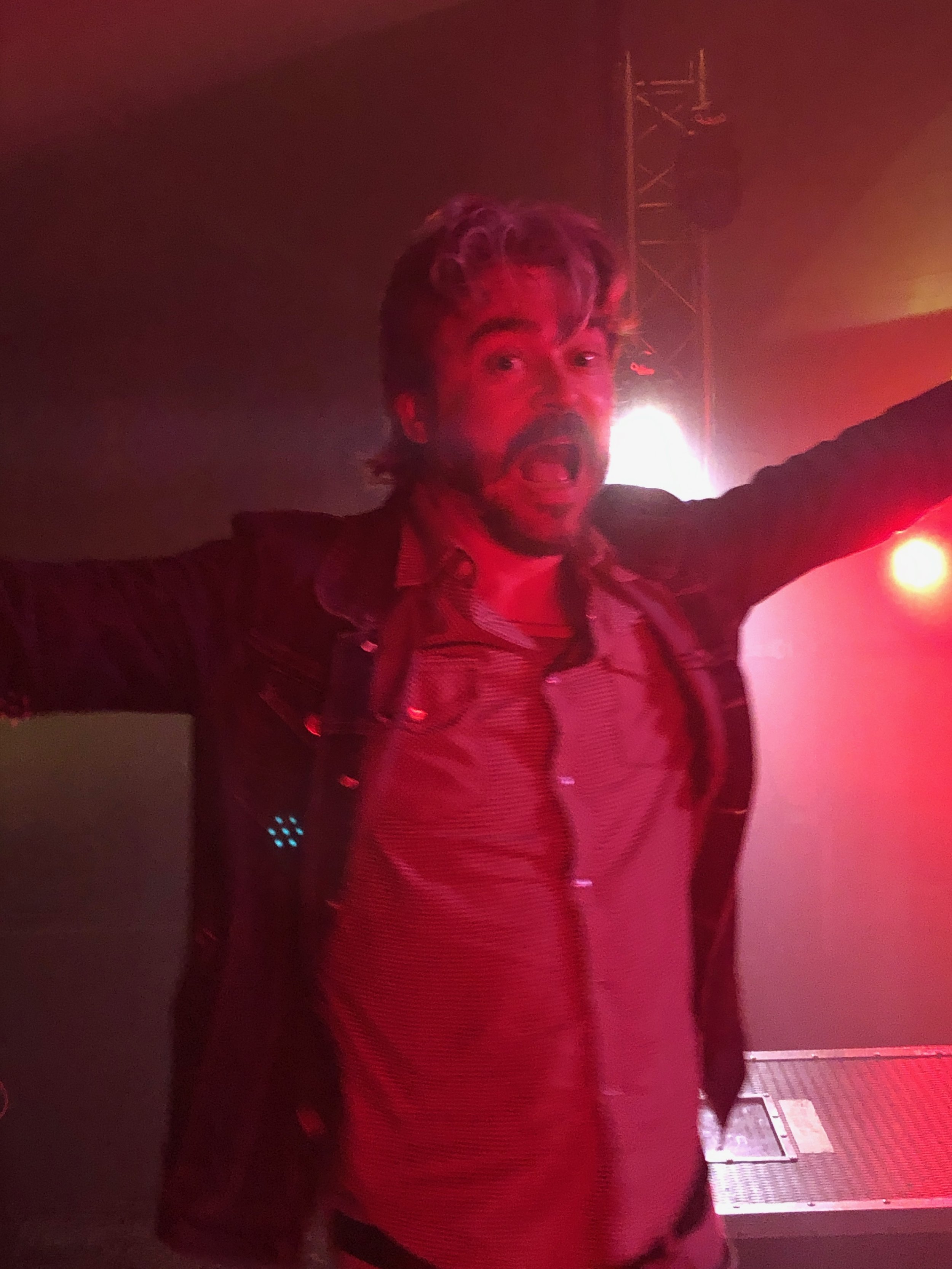
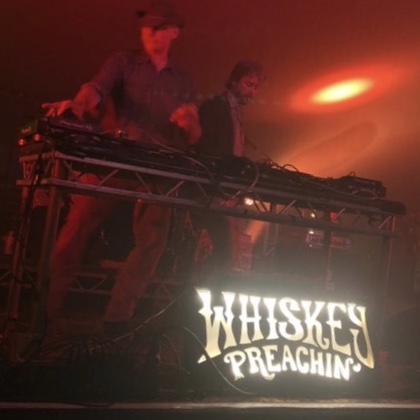

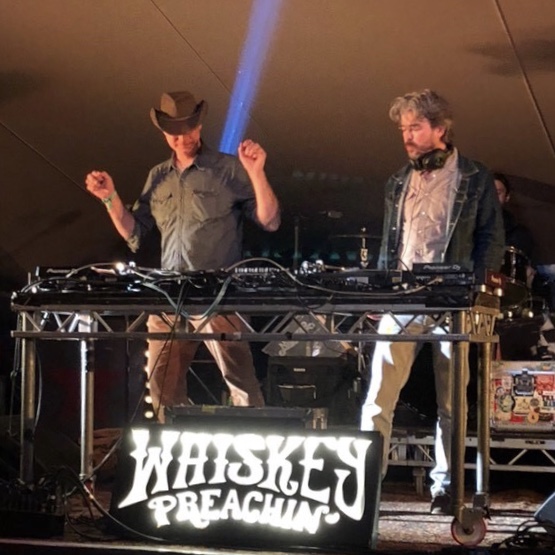
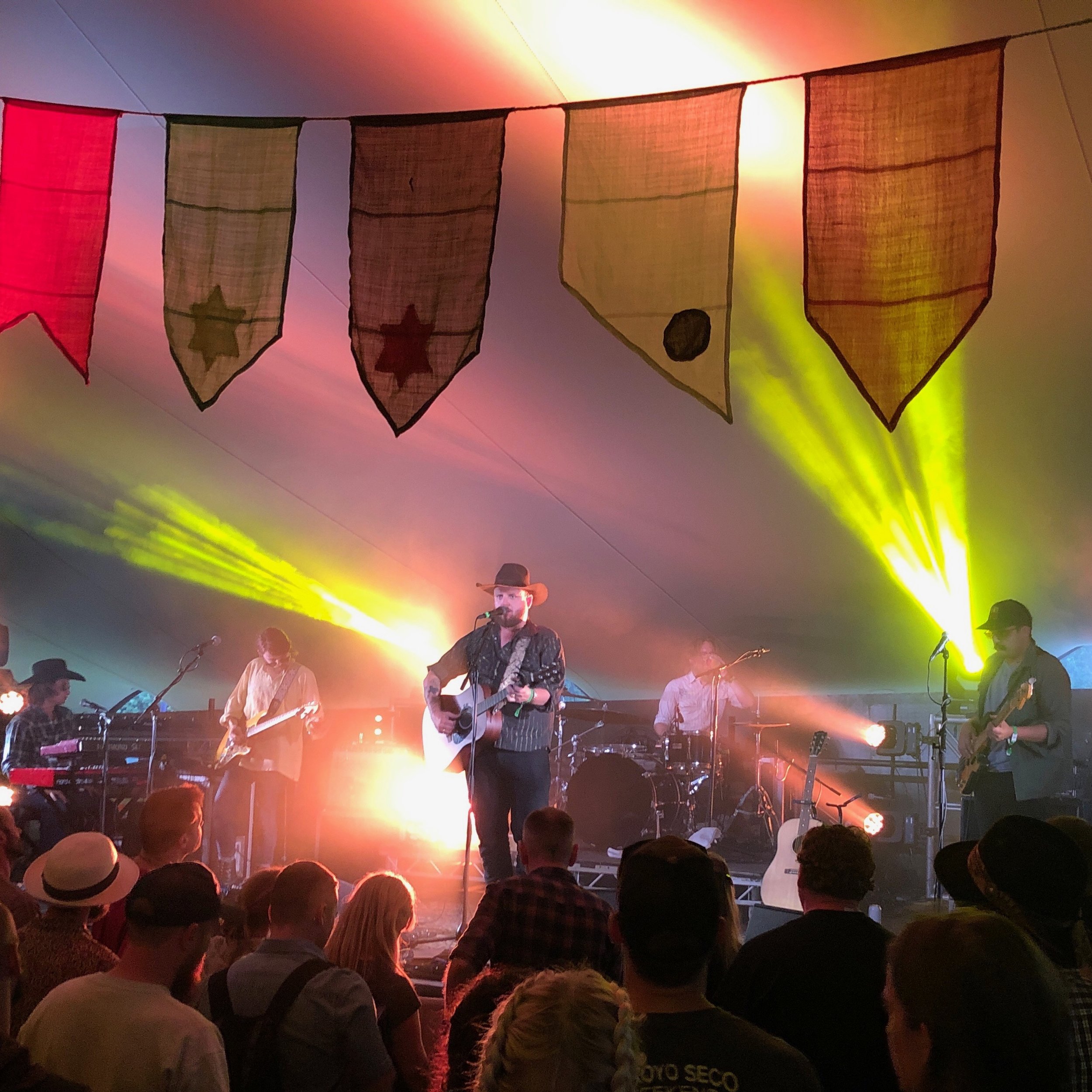
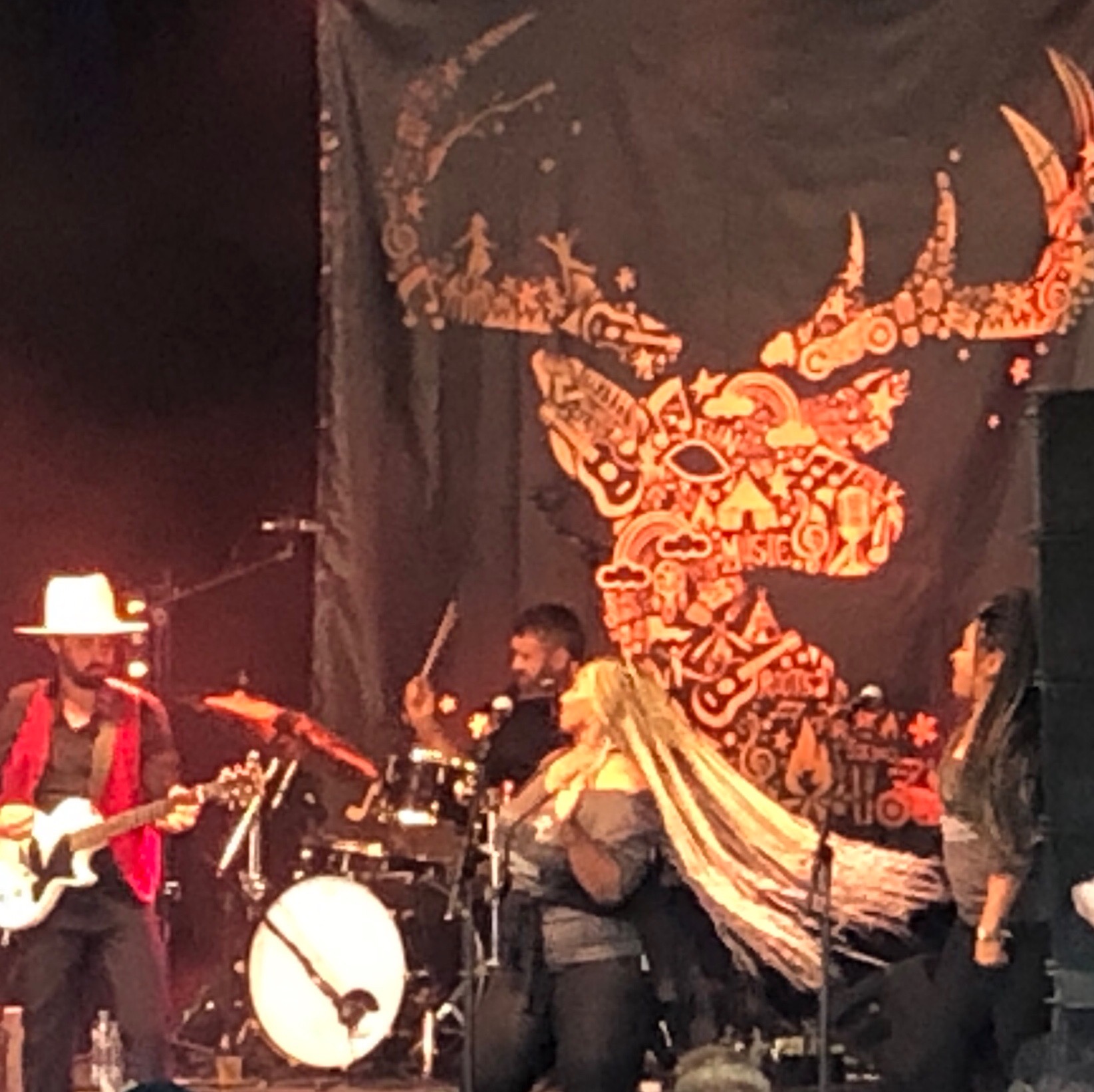
![Ania Shrimpton - Black Deer Festival 2019 -_DSC9514 [Web].jpeg](https://images.squarespace-cdn.com/content/v1/5ad854f8b98a78c008994fb6/1563469820458-4VZI7XK9HAN8D49H0M26/Ania+Shrimpton+-+Black+Deer+Festival+2019+-_DSC9514+%5BWeb%5D.jpeg)
